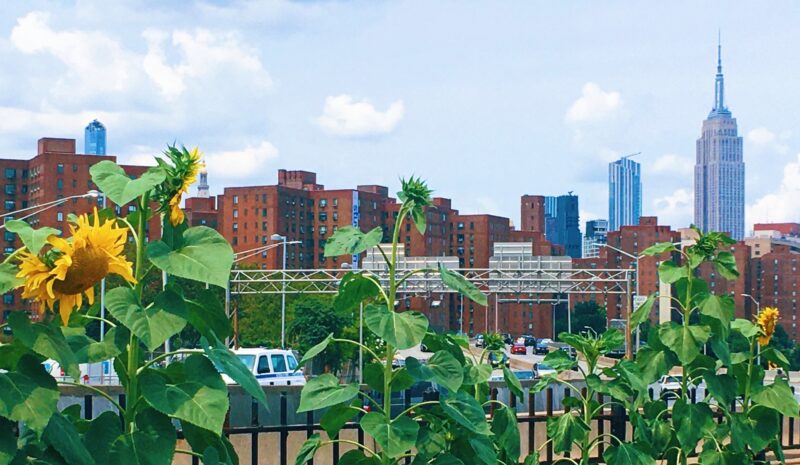9/11’s Aftermath: Connecting NYC’s Calamitous Past with the Present
Thursday September 30th, 4:30-6 PM ET

This event will take place online via Zoom. Please register for this event here.
We strive to provide language access through interpretation and live captioning for our events as well as visual descriptions whenever possible. If you have specific requests for forms of accessibility please email: jamesgallerycuny@gmail.com by September 20th.
Join this discussion of the reach of 9/11’s aftermath in five societal issues that remain a concern for individuals and New York City as a whole: public safety, civil rights, the human right to a healthy environment, mental health, and community well-being.
In the last twenty years, New York City has experienced two major catastrophes. In 2001 and again in 2020, New York City was seen by the world as a stricken city – in 2001 with the destruction of the World Trade Center and, in 2020 from March to May, it was the world epicenter of the COVID pandemic. Though different kinds of disasters, both were characterized by immense trauma and the shocking loss of lives.
In recent years, the phrases “like 9/11” and “since 9/11,” have emerged to denote catastrophes that rupture civic well-being and individual and collective lives. Such comparisons have connected 9/11 with the human and civic costs of profusely-contaminated air from western wildfires, health risks borne by essential workers in the COVID pandemic, urban areas reduced to rubble in disasters, and policies that exacerbate between-group disparities in well-being.
Looking back from the vantage of the present as well as looking forward into the future, the five panelists address these urgent and chronic issues to discuss how we, as individuals living collectively in a city, can safeguard our health, our privacy, and our well-being in contexts shaped by shared and extreme duress.
Panelists:
Susan Opotow, PhD, a social psychologist, is a professor in the Sociology Department at John Jay College of Criminal Justice and heads the PhD Program in Critical Social/Personality Psychology at the CUNY Graduate Center.
Charles Jennings, PhD, is Associate Professor in the Department of Security, Fire, and Emergency Management at John Jay College of Criminal Justice of the City University of New York and is the founding Director of the Christian Regenhard Center for Emergency Response Studies (RaCERS).
Rebecca Bratspies is a Professor at the CUNY School of Law, where she is the founding Director of the Center for Urban Environmental Reform.
Roberto Lucchini, MD, is a Professor at the School of Public Health, Florida International University. From 2012 to 2020 he was the Director of the Division of Occupational Medicine and the World Trade Center Data Center at the Icahn School of Medicine at Mount Sinai, NYC.
Naz Ahmad is a Senior Staff Attorney at the CLEAR clinic at CUNY School of Law School.
Mindy Thompson Fullilove, MD, is a social psychiatrist and professor of urban policy and health at The New School.
Zachary Baron Shemtob, PhD, is an alum of The Graduate Center, CUNY. He is a practicing lawyer and former Assistant Professor of Criminology and Criminal Justice at Central Connecticut State University.
Organized by Professor Susan Opotow, Zachary Baron Shemtob, and the James Gallery/Center for the Humanities.
Presented by the James Gallery/Center for the Humanities with the support of John Jay College of Criminal Justice CUNY; CUNY Law School; The Public Science Project; CUNY Graduate Center PhD Programs in: Critical Social/Personality Psychology, Urban Education, and Social Welfare; Sociology Department at John Jay College of Criminal Justice CUNY; The Center for Place, Culture, and Politics; Fordham University Press. It is free and open to the public.



